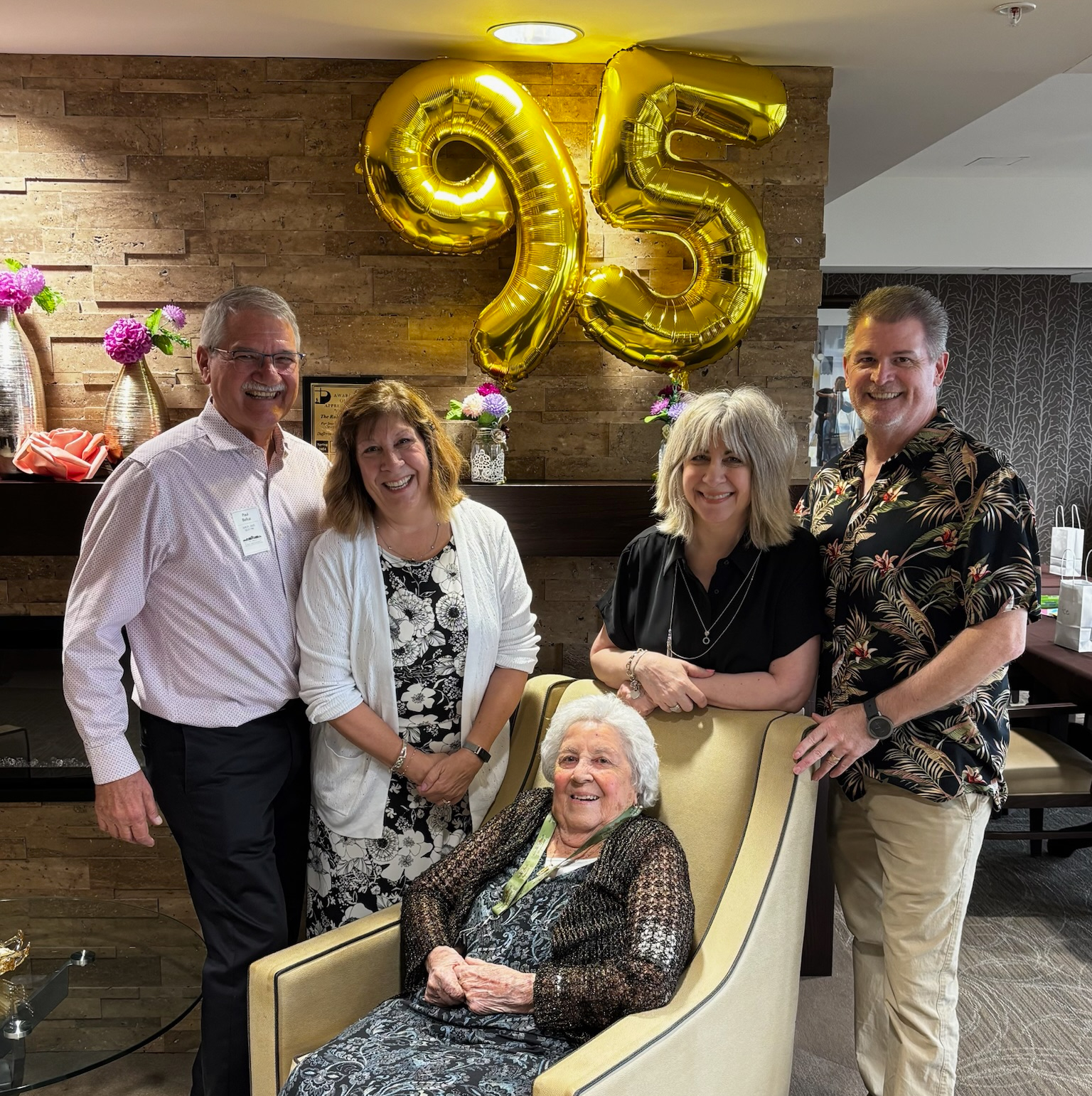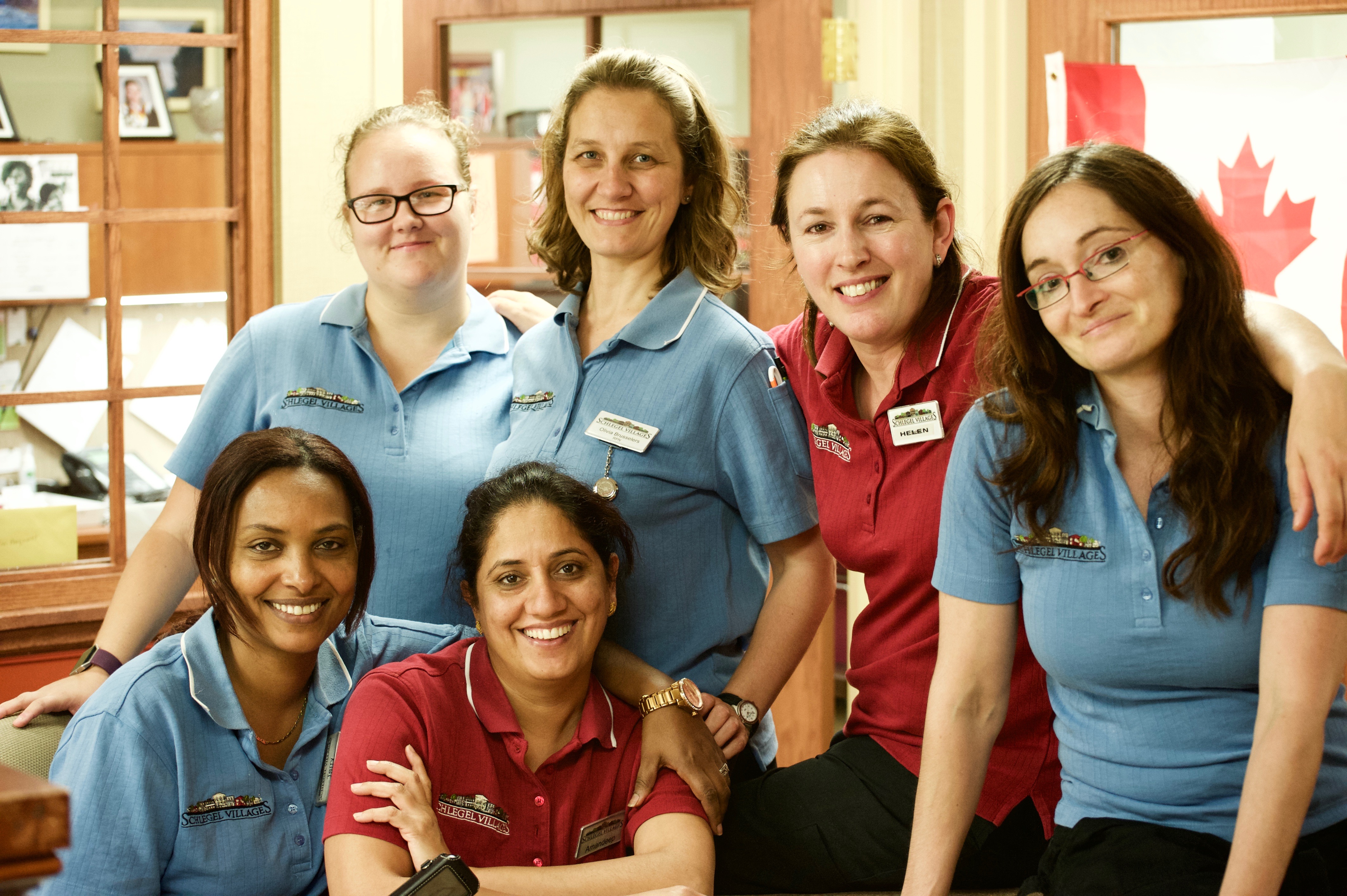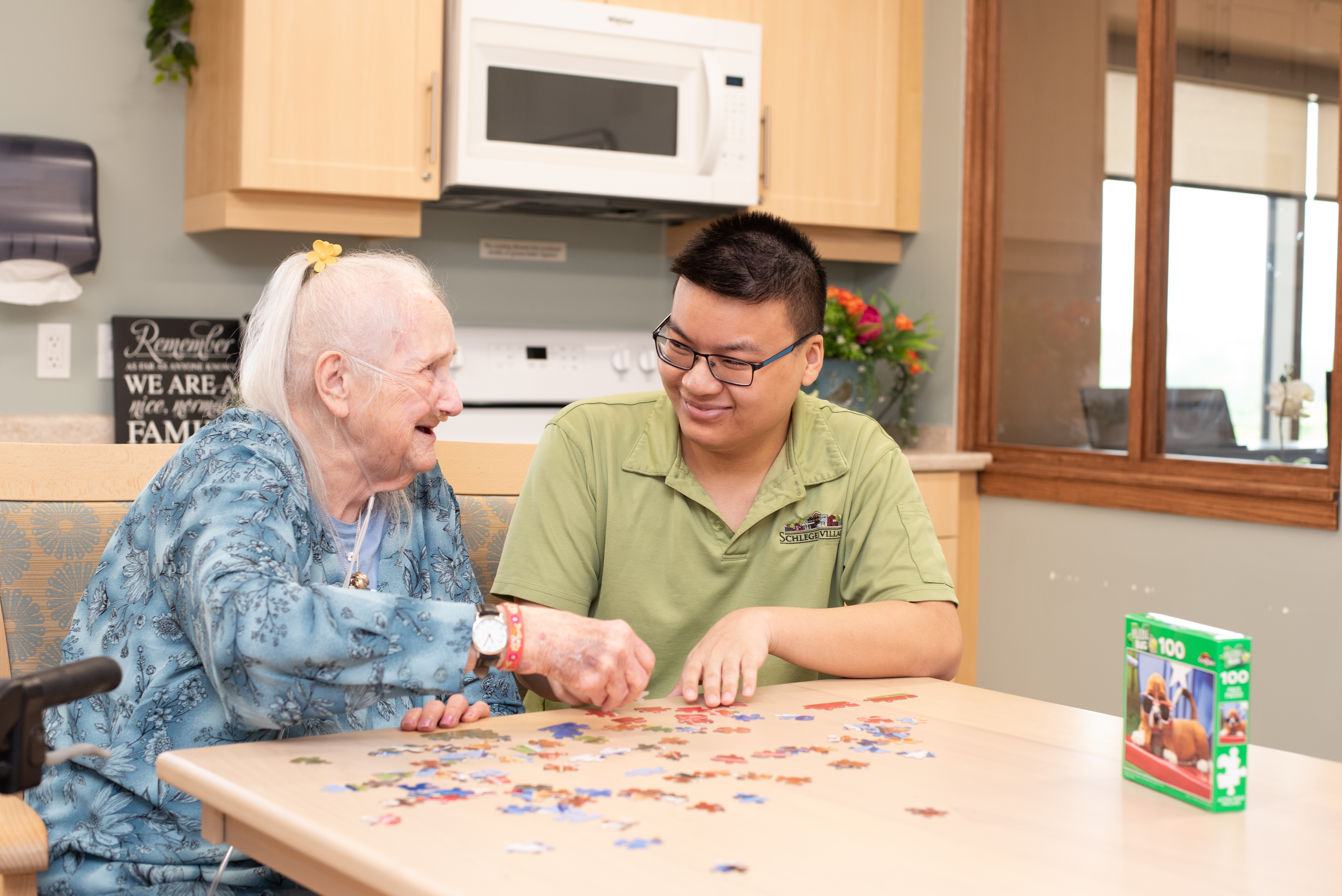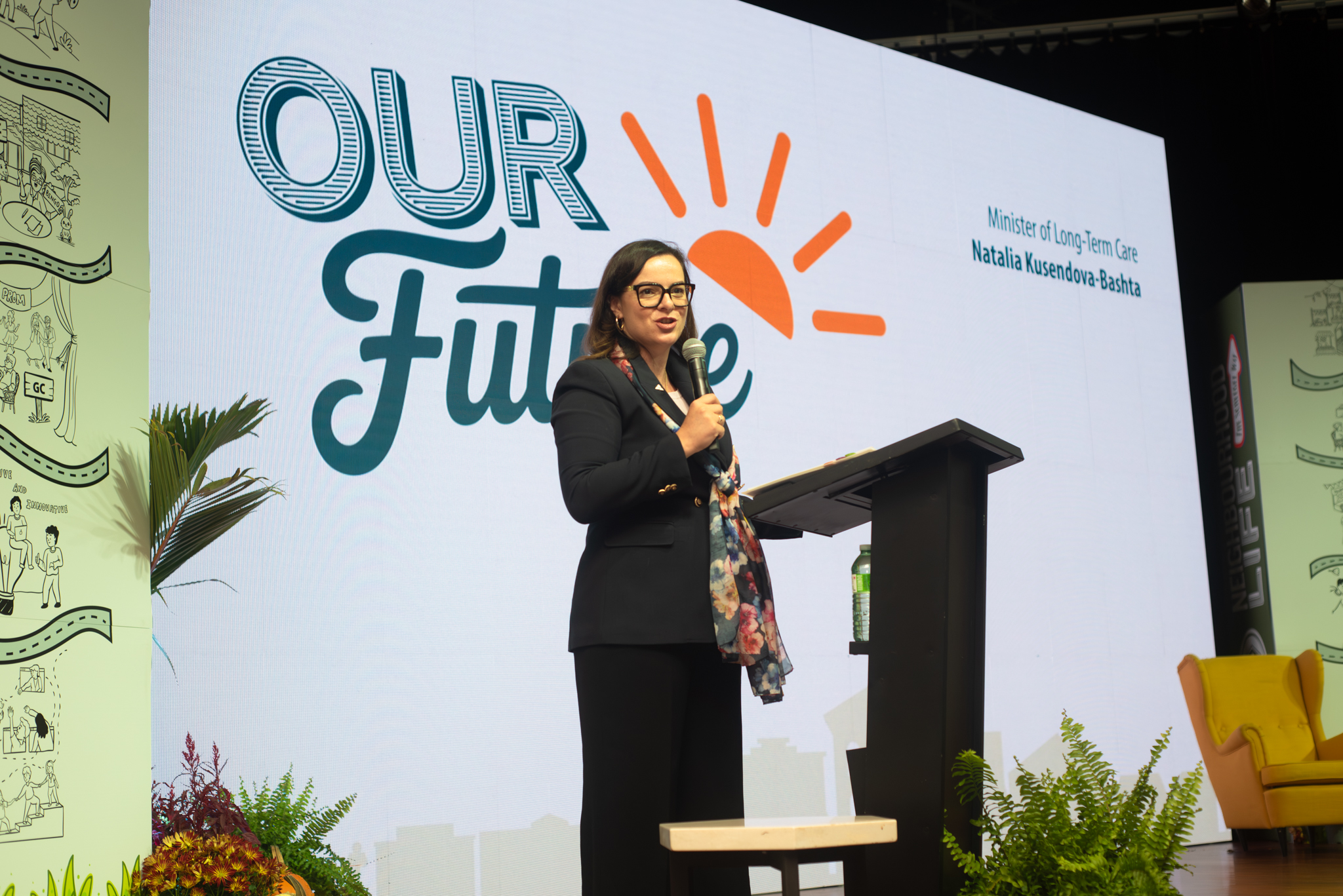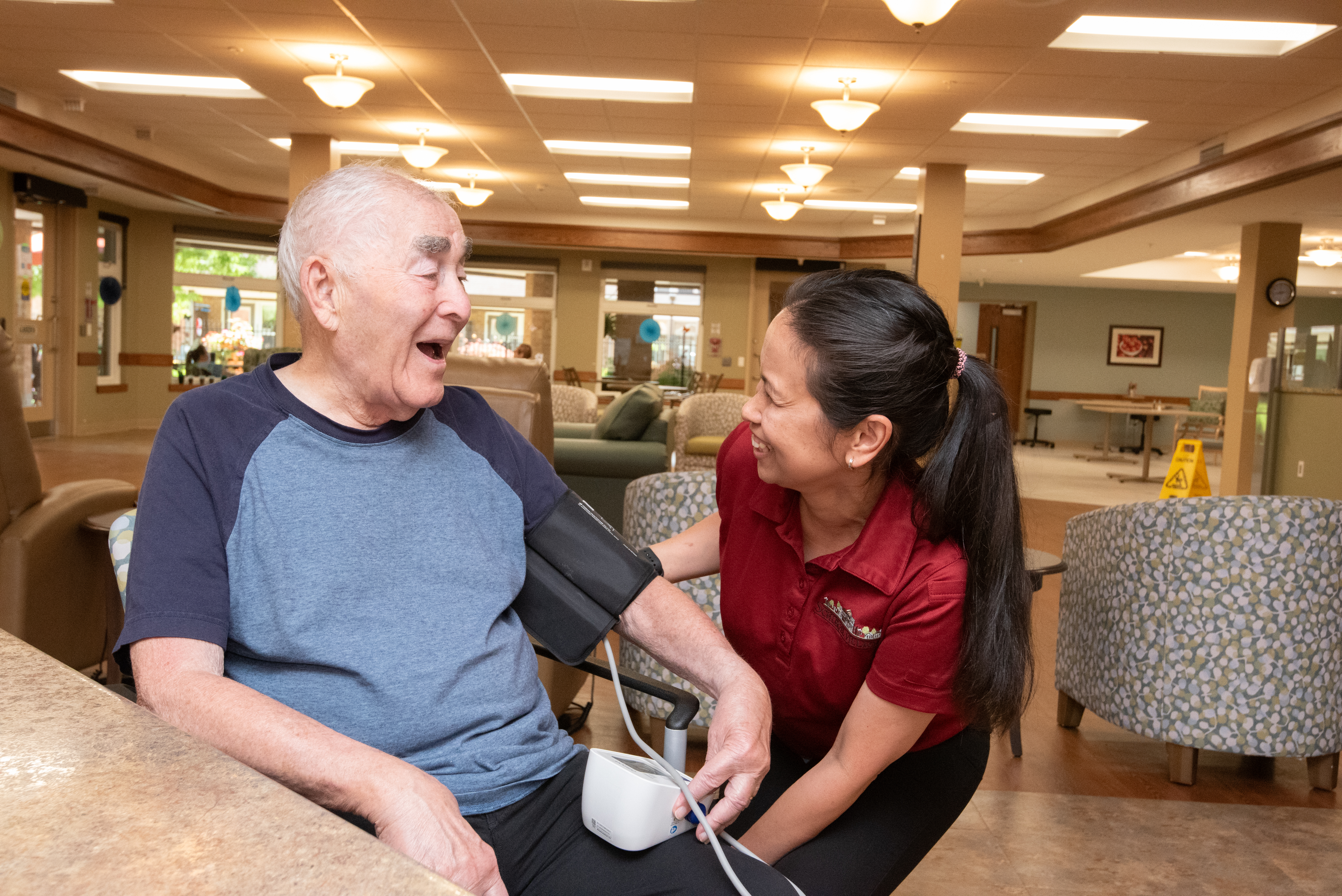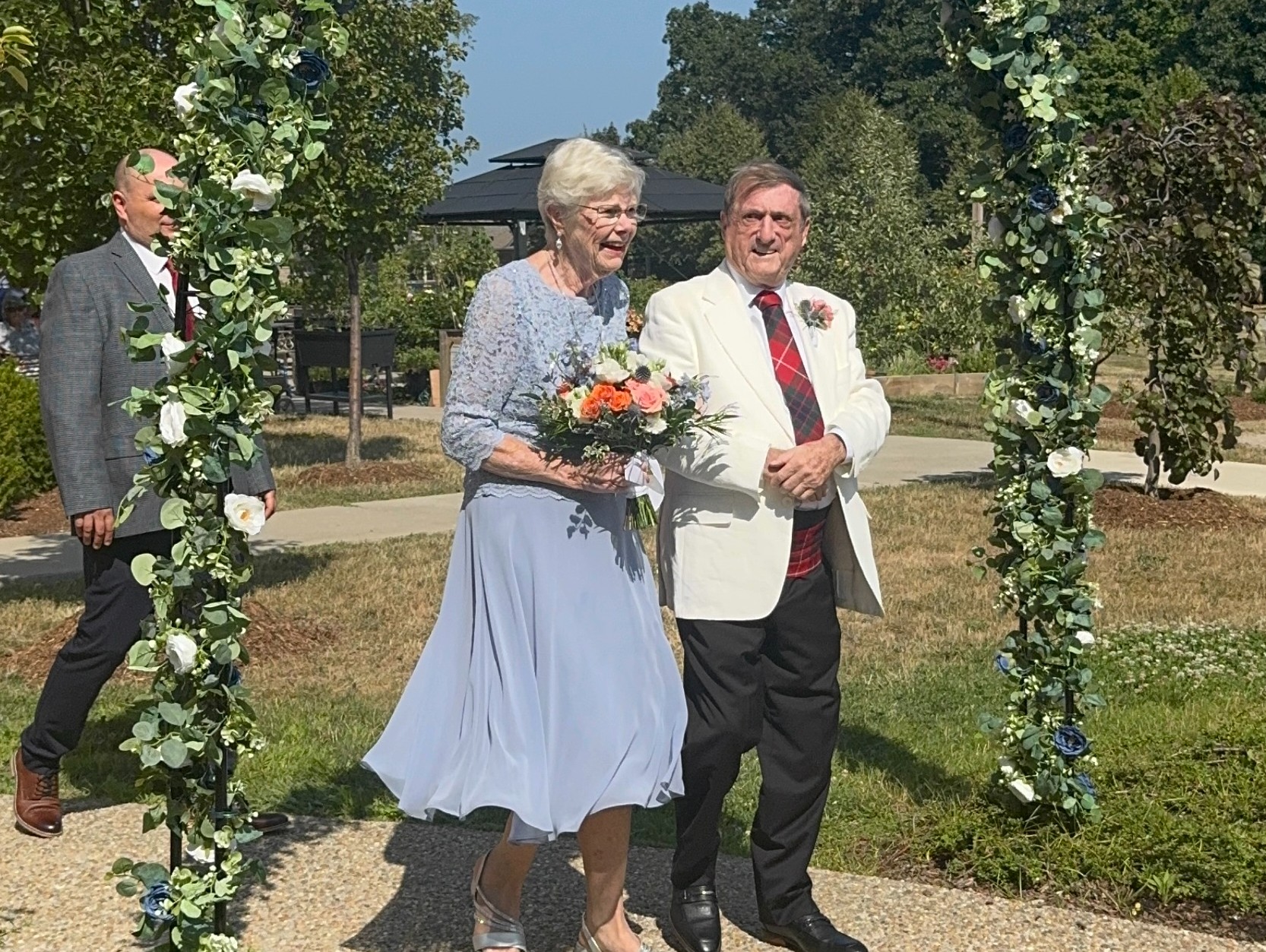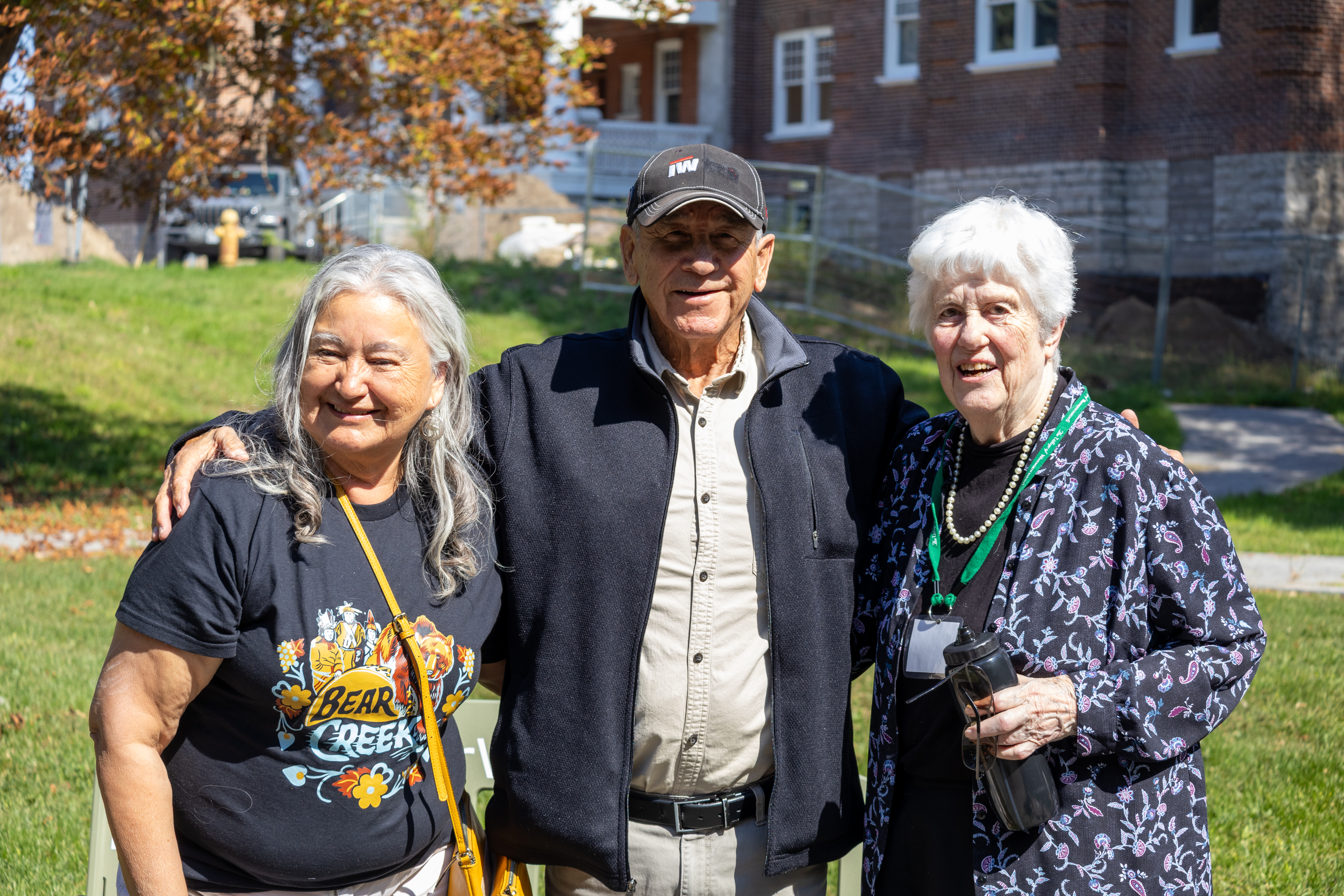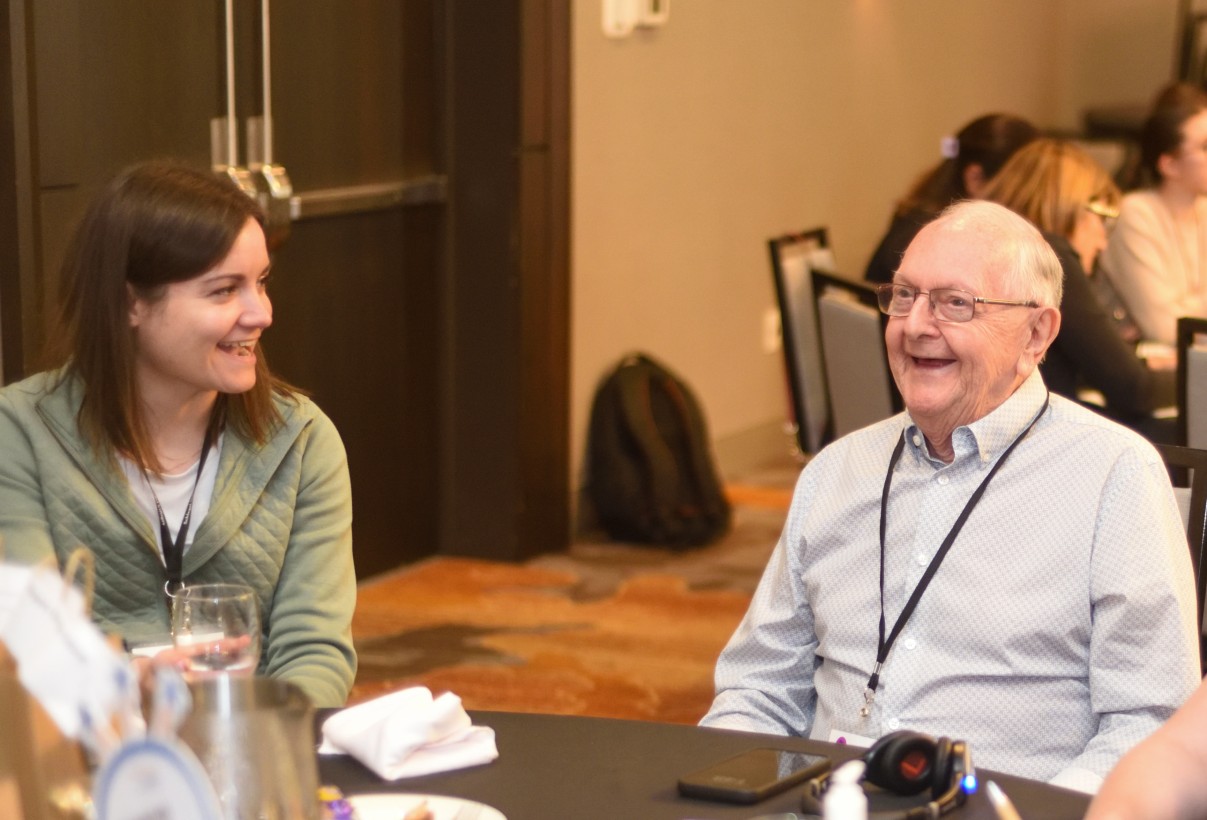Personal support worker Bev Williams admits she was skeptical when the idea of dedicated support was first introduced in the Elliott neighbourbood of The Village of Sandalwood Park in the fall of 2018.
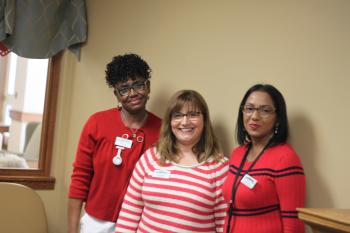
Bev, Rosa and Bibi say that teamwork and communication
are critical if dedicated support is going to work.
She understood the concept and agreed there could be great benefits if the same team members supported the same residents day in and day out – she just wasn’t certain it could be consistently arranged.
After four months, however, she is converted and she could scarcely imagine going back to the way it once was. Yes, there were some kinks to work out as the team figured out what needed to happen in order to implement the concept, and that tweaking is still underway, but overall the neighbourhood has become more comfortable since dedicated support became the norm.
Before dedicated support, Bev and her fellow PSWs worked in all corners of the village and many residents, especially those living with dementia and associated memory changes, had a hard time connecting with certain team members.
Now in Elliott as part of this initial trial, Beverley works with the exact same residents every day. She knows these residents and their needs and concerns well, and she’s able to communicate with them on an entirely new level.
“It might seem complicated at first,” Beverley says, “but once you get to know what you’re doing and what your day’s going to be like, you know what you have to do. Once they see you in the morning they know that face,” she continues. “They’ve seen that face and it’s familiar and they know that person’s going to provide care for them.”
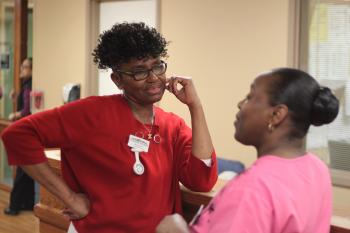
Bev (left) was skeptical in the beginning but now says
dedicated support is definitely the way to go.
Team lead Bibi Subhan says the team notices far fewer residents with difficult personal expressions, which attributes to the increased comfort they feel with the consistency of their care partners. The team has been documenting the improvements since the switch to dedicated support in order to prove whether or not the system is better for resident life quality. Other neighbourhoods and villages are watching closely.
Bev, Bibi and neighbourhood coordinator Rosa Serrano don’t need to wait for the data, however, in order to come to their own conclusions. They can sense the enhancements every day in the neighbourhood, especially in the way it feels when one first steps into Elliott in the morning. The lights are dim and the mornings are quiet and peaceful as the early risers ease into their day and those residents who prefer to stay in bed a little later do so. Residents are more rested, it seems, and have more energy throughout the day. They eat better so their nutritional intake is improved and that shows in their overall health and attitude. The team itself is more at ease for things just seem to runs smoothly. There is a sense of calmness in the neighbourhood, and it tends rub off on everybody.
“Team work and communication, those are the keys,” Bibi says, suggesting that families are a big part if the equation as well. “You have to work together.” With the enhanced communication comes a greater sense of cooperation in the care and support of residents. Families know the PSWs who spend the most time with their loved ones, and they communicate much more effectively because of the depth of the relationships. The positive feedback has consistently been coming in.
“I’m very proud of the Elliott team members,” Rosa says. “It’s been a long journey with some ups and downs, but it’s been all worth it.”
- Previous
- View All News
- Next
